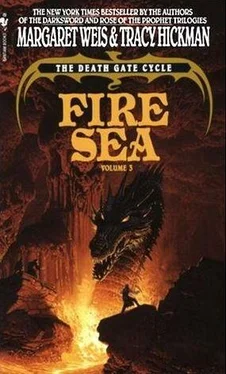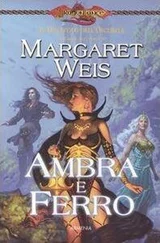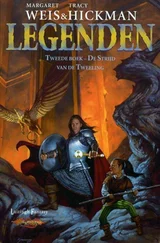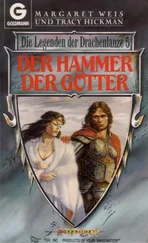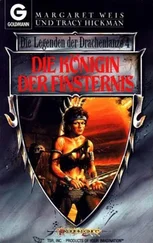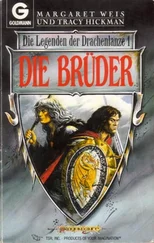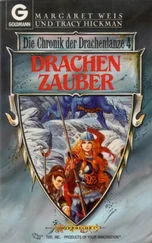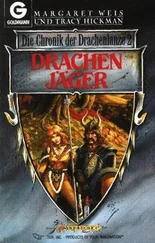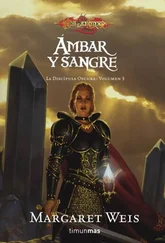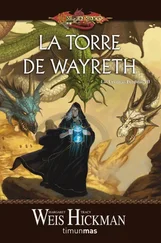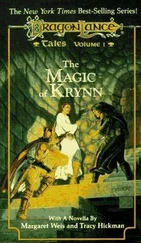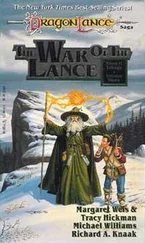Margaret Weis - Fire Sea
Здесь есть возможность читать онлайн «Margaret Weis - Fire Sea» весь текст электронной книги совершенно бесплатно (целиком полную версию без сокращений). В некоторых случаях можно слушать аудио, скачать через торрент в формате fb2 и присутствует краткое содержание. Жанр: Фэнтези, на английском языке. Описание произведения, (предисловие) а так же отзывы посетителей доступны на портале библиотеки ЛибКат.
- Название:Fire Sea
- Автор:
- Жанр:
- Год:неизвестен
- ISBN:нет данных
- Рейтинг книги:4 / 5. Голосов: 1
-
Избранное:Добавить в избранное
- Отзывы:
-
Ваша оценка:
- 80
- 1
- 2
- 3
- 4
- 5
Fire Sea: краткое содержание, описание и аннотация
Предлагаем к чтению аннотацию, описание, краткое содержание или предисловие (зависит от того, что написал сам автор книги «Fire Sea»). Если вы не нашли необходимую информацию о книге — напишите в комментариях, мы постараемся отыскать её.
Fire Sea — читать онлайн бесплатно полную книгу (весь текст) целиком
Ниже представлен текст книги, разбитый по страницам. Система сохранения места последней прочитанной страницы, позволяет с удобством читать онлайн бесплатно книгу «Fire Sea», без необходимости каждый раз заново искать на чём Вы остановились. Поставьте закладку, и сможете в любой момент перейти на страницу, на которой закончили чтение.
Интервал:
Закладка:
“So we have time,” Haplo said. “But we have to cross the Fire Sea.”
“I know of a way,” said the prince, “if you have the courage to use it.”
It wasn’t a question of courage anymore.
Alfred spoke Haplo’s thought. “We have no choice.”
43
Necropolis had fulfilled the dread portent of its name. Mangled bodies lay huddled in doorways, struck down before they could reach refuge. Nor would they have escaped, even then. Doors had been split asunder, beaten down by the dead, in their efforts to wrest life from the living. They had been successful. The water that ran in the gutters was stained dark with blood.
The phantasm of Prince Edmund led them through the winding runnels of the City of the Dead. They avoided the main gate, which might be guarded, escaped the city through one of the rat holes. Once outside the walls, they could hear, in the distance, a dull rumbling sound that echoed off the high cavern ceiling and shook the ground on which they stood. The armies of dead, preparing for war.
Numerous pauka, still harnessed to their carts, roamed the outskirts of Necropolis. The animals were bewildered, frightened at the smell of blood. Owners and riders were dead, bodies left to lie where they’d fallen or resurrected and borne away to assist in the slaughter. Haplo and Jonathan commandeered a carriage, dragged the bodies of a man, a woman, and two children out of it. Alfred climbed inside, scarcely knowing what he was doing, acting completely under guidance, usually Jonathan’s, but sometimes—roughly—Haplo’s.
The carriage rattled off. The pauka appeared relieved to have someone in control of its life once more. Jonathan drove, Haplo sat beside him, keeping watch. The cadaver of Prince Edmund sat upright in the passenger seat next to Alfred. The prince’s phantasm acted as guide. They headed eastward for several miles, traveling in the direction of Rift Ridge. Reaching an intersection, the carriage turned southward toward the Fire Sea. The dog ran alongside, occasionally barking at the pauka, much to that animal’s discomfiture. Jonathan drove as fast as he dared. The carriage rocked and bounced over the rock-strewn highway, fields of kairn grass whipped past them in a dizzying blur of greenish brown. Alfred clung to the side of the lurching carriage, expecting every moment to be pitched out of it or overturned in it. He rode in fear of his life, a thing he couldn’t understand, for his life had very little meaning left to it.
What base animal instinct in us drives us? Alfred wondered to himself bitterly. Forces us to continue living, when it would be far easier to sit down and die.
The carriage rolled around a corner on two wheels. The Sartan was thrown violently against the chill form of the cadaver. The carriage righted itself. Alfred righted himself, Prince Edmund’s corpse assisting him with its accustomed dignity.
Why do I cling to life? What is there left for me, after all? Even if I escape this world, I can never escape the knowledge of what I’ve seen, the knowledge of what my people have become. Why should I race to warn Baltazar? If he survives, he’ll continue to look for Death’s Gate. He’ll figure out how to enter and carry the contagion of necromancy into the realms beyond. Haplo himself has threatened to bring the art to the knowledge of his lord.
Yet, Alfred pondered, the Patryn spoke of that when we first came. He hasn’t mentioned it since. I wonder how he feels about it now. Sometimes I imagine I’ve seen the same horror that I’ve felt in my soul reflected in his eyes. And in the Chamber of the Damned, he was the young man seated next to me! He saw what I saw—
“He fights against it, as do you,” said the prince, breaking in on Alfred’s thoughts.
Startled, Alfred tried to speak, to protest, but the words were jounced out of his mouth. He nearly bit off his tongue. Prince Edmund understood, however.
“Only one out of the three of you opened his heart to the truth. Jonathan doesn’t understand completely, yet, but he is near, much closer than you.”
“I want... to know ... the truth!” Alfred managed to get out, shooting the words from between clenched teeth to keep from biting his tongue again.
“Do you?” asked the phantasm, and it seemed to Alfred that he saw it coolly smile. “Haven’t you spent your life denying it?”
His fainting spells: used consciously at first to keep from revealing his magical powers, had now become uncontrollable. His clumsiness: a body at odds with its spirit. His inability—or was it refusal—to call to mind a spell that would give him too much power, unwanted power, power that others might try to usurp. Constantly putting himself in the role of observer, refusing to act for good or for evil.
“But what else could I have done?” Alfred asked defensively. “If the mensch once found out I had the power of a god, they would force me to use that power to intervene in their lives.”
“Force you? Or tempt you?”
“You’re right,” Alfred admitted. “I know I’m weak. The temptation would have been too strong, was too strong. I gave in to it—saving the child Bane’s life when his death would have averted the tragedies that followed.”
“Why did you save the child? Why”—the prince’s ghostly gaze shifted to Haplo—“did you save the man? Your enemy? An enemy who has vowed to kill you? Search your heart for the answer, the true answer.”
Alfred sighed. “You’ll be disappointed. I wish I could say I acted because of some noble ideal—chivalrous honor, self-sacrificing courage. But I didn’t. In Bane’s case, it was pity. Pity for an unloved child who would die without ever knowing a moments happiness. And Haplo? I walked in his skin, for a few brief moments. I understand him.” Alfred’s gaze went to the dog. “I think I understand him better than he understands himself.”
“Pity, mercy, compassion.”
“That’s all, I’m afraid,” said Alfred.
“That is everything,” said the phantasm.
The road on which they traveled was empty, deserted. It had been trampled by many feet, part of the army of the dead had passed this way, flowing out of the city onto the many highways leading to the Fire Sea. Helmets, shields, bits and pieces of armor, bones and, here and there, a fallen, shattered skeleton lay scattered in the army’s wake. Farm carts or carriages were discovered abandoned, their passengers either murdered or they had fled the rumor of the dead army’s coming.
Alfred had first believed Tomas to have been correct. They had not seen one living being since they emerged from the catacombs. He feared that everyone in or around Necropolis must have fallen victim to the dead’s fury. But on their journey, he thought more than once that he caught a glimpse of furtive movement in the tall kairn grass, thought he saw a head lift, eyes—living eyes—peer fearfully out at them. But the carriage whirled past too swiftly for him to confirm what he’d seen or mention it to the others.
But it was a tiny crack of hope, splitting the darkness like light shining from beneath a closed door. His spirits raised, whether because of the newfound hope or the phantasm’s comforting words, he couldn’t tell. His brain was too jounced and jostled for coherent thought. He clung to the side of the carriage, hanging on to it in grim resolve. Life did have meaning and purpose. He wasn’t certain what that was, yet. But he had decided at least to keep searching.
The carriage neared the Fire Sea, neared danger. Topping a rise, Alfred gazed down on the docks far below, gazed down on an army of dead, swirling and milling about the ships in chaos. He was reminded of a colony of coral grubs invaded by a hungry dragon hatchling. At first each grub sought only to escape the crunching jaws. After the initial confusion and panic, however, the threat united the insects and they turned, as one, to repel the invader. The mother dragon had rescued her young just in time.
Читать дальшеИнтервал:
Закладка:
Похожие книги на «Fire Sea»
Представляем Вашему вниманию похожие книги на «Fire Sea» списком для выбора. Мы отобрали схожую по названию и смыслу литературу в надежде предоставить читателям больше вариантов отыскать новые, интересные, ещё непрочитанные произведения.
Обсуждение, отзывы о книге «Fire Sea» и просто собственные мнения читателей. Оставьте ваши комментарии, напишите, что Вы думаете о произведении, его смысле или главных героях. Укажите что конкретно понравилось, а что нет, и почему Вы так считаете.
